Vietnamese Lessons (iii) and Vietnamese Phrase Book (iii)
from poet Edward Kissam, publishers Anvil Press Poetry and Headquarters, Department of the Army
Edward Kissam published Vietnamese Lessons with Anvil Press Poetry when I was turning 10 years old in the winter of 1970. The Department of the Army had issued Vietnamese Phrase Book when I was already 2 in July of 1962, the year Edward marked his 19th birthday.
The first sentence of its introduction specifies that the manual is for United States Special Forces. They had wandered Viet Nam since 1957, abundantly funded and loosely supervised by the Central Intelligence Agency for their war in Laos.
Army published the manual as they wrested control of the teams from CIA, winning in 1964. My late neighbor Loyd Little wrote a comic novel about an SF team misplaced in the transition, that captures a sense of improvisation in that time and place.
Vietnamese was a second language for many locals, as it remains. Missionaries to the national minorities of the area learned Vietnamese so they could then learn a third language to evangelize in.
Some SF soldiers spoke English as a second language. They were refugees from the frontiers of Europe which they also hoped to free from Communism.
Army published a Russian Phrase Book in the same format that same month. Since we weren’t raising partisans in the territory of the Warsaw Pact, so far as I have heard, the 5 years of experience in the frontiers of former Indochine may have structured those preparations for a third war for Europe.
That would be cool, a reversal of our accustomed sense that the Americans fought in Cambodia, Laos, and Viet Nam as if in Albania, Bulgaria, Czechoslovakia, Germany Hungary, Poland, Romania, and the Soviet Union. The Vietnamese manual speaks of “the enemy,” as Vietnamese did, and makes no reference to North Viet Nam as Americans did.
On the other hand the manual does discuss avalanches, and snow, a concern in the mountains of mainland Northwest not Southeast Asia. Perhaps Army developed the Russian and the Vietnamese Phrase Book in the same shop.
I have ordered a copy of the Russian one where I expect to find the same table of contents. The IX chapters of the Vietnamese Phrase Book propose conversations for stages in organizing an insurgency.
The poem Vietnamese Lessons leaves out the apparatus criticus and all the Vietnamese language. Edward Kissam was addressing speakers of English in the United Kingdom and the United States of America.
He drew text from just 5 of the IX sections, leaving out ORIENTATION, and ACCIDENTAL ENCOUNTERS WITH DESERTERS. He wasn’t trying to figure out where he was or talking anyone into joining him rather than flee the whole war.
He left behind as well ENEMY LINES OF COMMUNICATION and DROP ZONES, technicalities of running an intelligence network for sabotage. He starts where the manual does.
INITIAL CONTACT WITH LOCALS
That first bit is what all of us who have learned the language as adults have practiced upon each other. Most of us learn that we are saying hello grandfather, hello grandmother.
But when you proceed directly to announce I am an American soldier, marks of social distance between generations are indeed not germane. Note that the hierarchical distinction between soldier and officer does bear mention.
Note as well that both ranks are looking for “friends,” an egalitarian pronoun in Vietnamese. Man and officer alike are raising partisans, an army of buddies, informal.
Army did not use the more militant term comrade as a term of address at the time. In Vietnamese it designated a Party member, used with rank, for instance comrade lieutenant.
Informally, the pronouns of the People’s Army of Viet Nam and the Southern Front for the Liberation of Viet Nam were the intimate family terms of brother and father and nephew and son and uncle and aunt and mother and niece and sister.
Vietnamese Phrase Book lingers on the initial meeting for 64 questions. Vietnamese Lessons moves right along to pick 2 from the 78 questions of section II:
SECURITY
How does this work? You make a friend, then he stands behind each new person you meet, winking, patting his tummy, waving his head? Look what happens when he doesn’t keep a straight face:
The world now agrees openly that assassination is the way to fight. Across the early modern, Renaissance, and counter-Reformation centuries the Vatican murdered opponents and of course to maintain security in its own service.
Now again these days the White House holds a press conference after killing a target overseas. However, in 1969 a graduate of my high school caused a scandal doing this very thing.
The public were conflicted about Robert Rheault. Here we see just such a conspiracy to murder casually acknowledged in a public document of the United States of America 7 years before, in 1962.
BASIC INFORMATION ON THE POTENTIAL OF LOCALS FOR ORGANIZATION OF GUERRILLA UNITS
Kissam took 7 of 26 questions in V, for making conversation on a friendly visit:
&
&
&
FOOD, SANITATION, WEATHER
5 of 33 in VIII. Addressing bodily needs only, none from the 17 questions about the weather:
&
SOCIAL
9 of 30 in IX. Down to business:
&
&
&
When Edward published his Vietnamese Lessons, CIA had turned such conversations as Vietnamese Phrase Book suggests into a questionnaire for a market survey, hilariously the Hamlet Evaluation System. To kill or not to kill?
Their science project established that the only thing to do was to exterminate the brutes. Bodies littered the stage like the last act of the tragedy of the prince of Denmark.
Things were more human in the SF teams back in 1962 before everyone got hoist with their own petard. May flights of angels sing thee to thy rest:
How could anyone not make 1 poem after another from this stuff? Edward turned just 27 that year and 80 this one.
Did he really stop with 1 Vietnamese Lesson? I will ask him.
Right now, we read the poem you have. What does this one say?
This was the third Viet Nam letter of 3 so far presenting Vietnamese Lessons by Edward Kissam and Vietnamese Phrase Book from the Department of the Army. The first posted on September 20, 2023 and the second on September 25, 2023.
Viet Nam letters respects the property of others under paragraph 107 of United States Code Title 17. If we asked for permission it wouldn’t be criticism. We explain our fair use at length in the letter of September 12, 2022.
The colophon of these Viet Nam letters, directly above, shows the janitor speaking with poet David A. Willson on a Veterans Day.




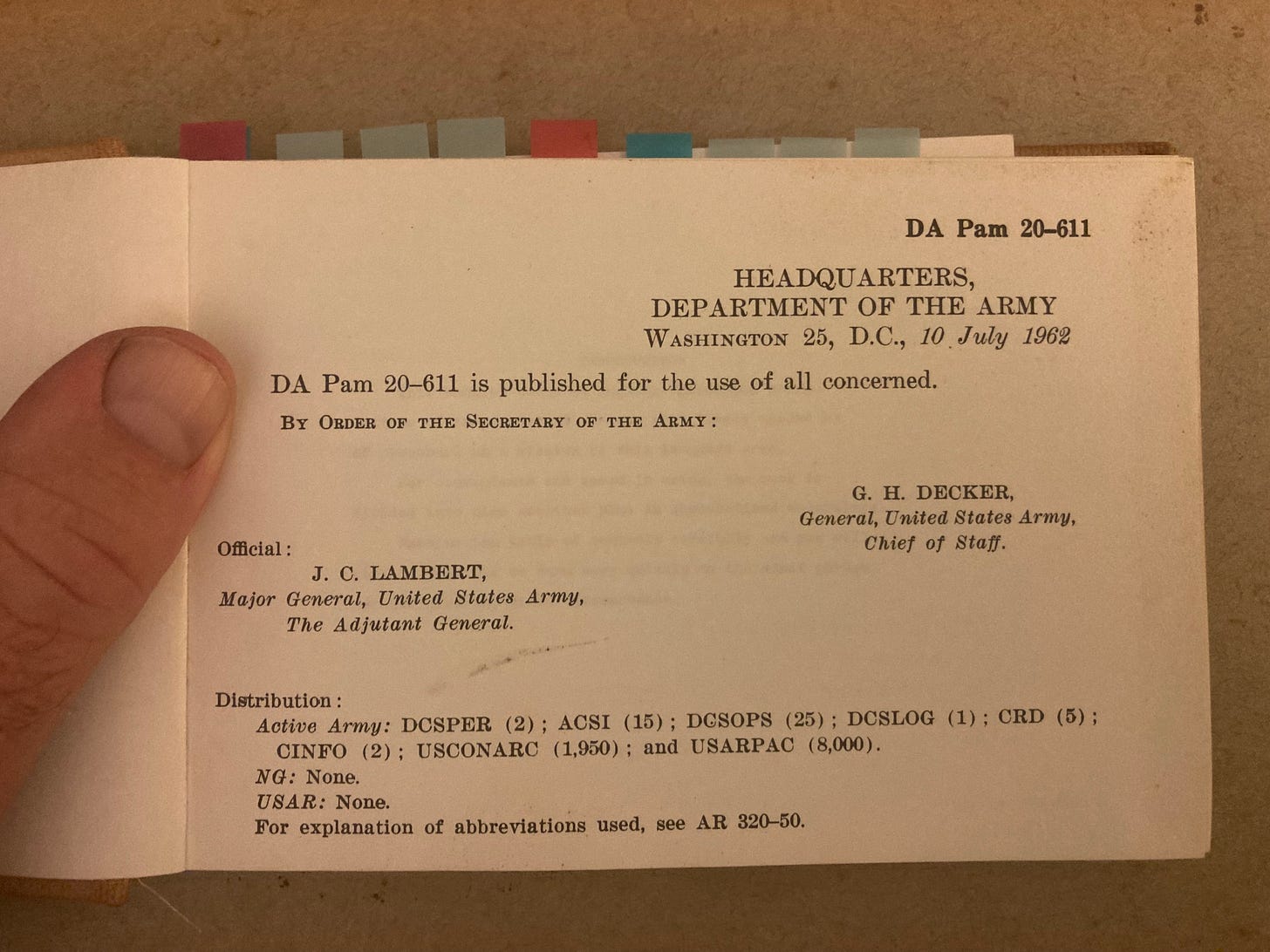


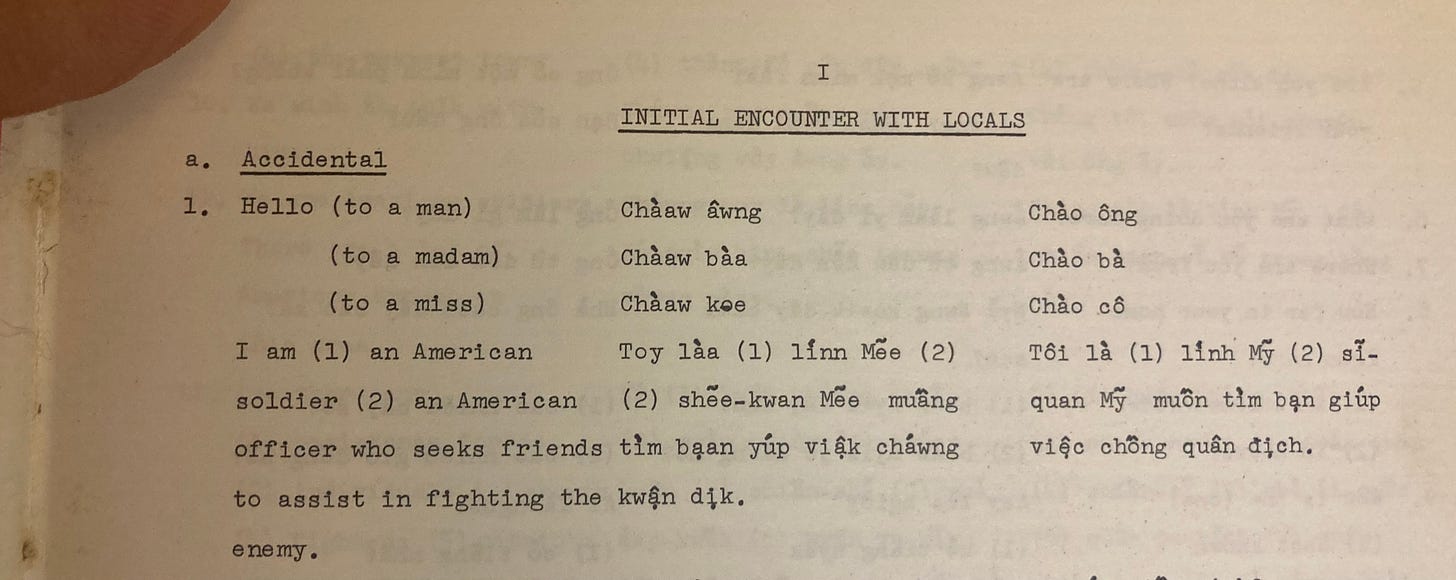
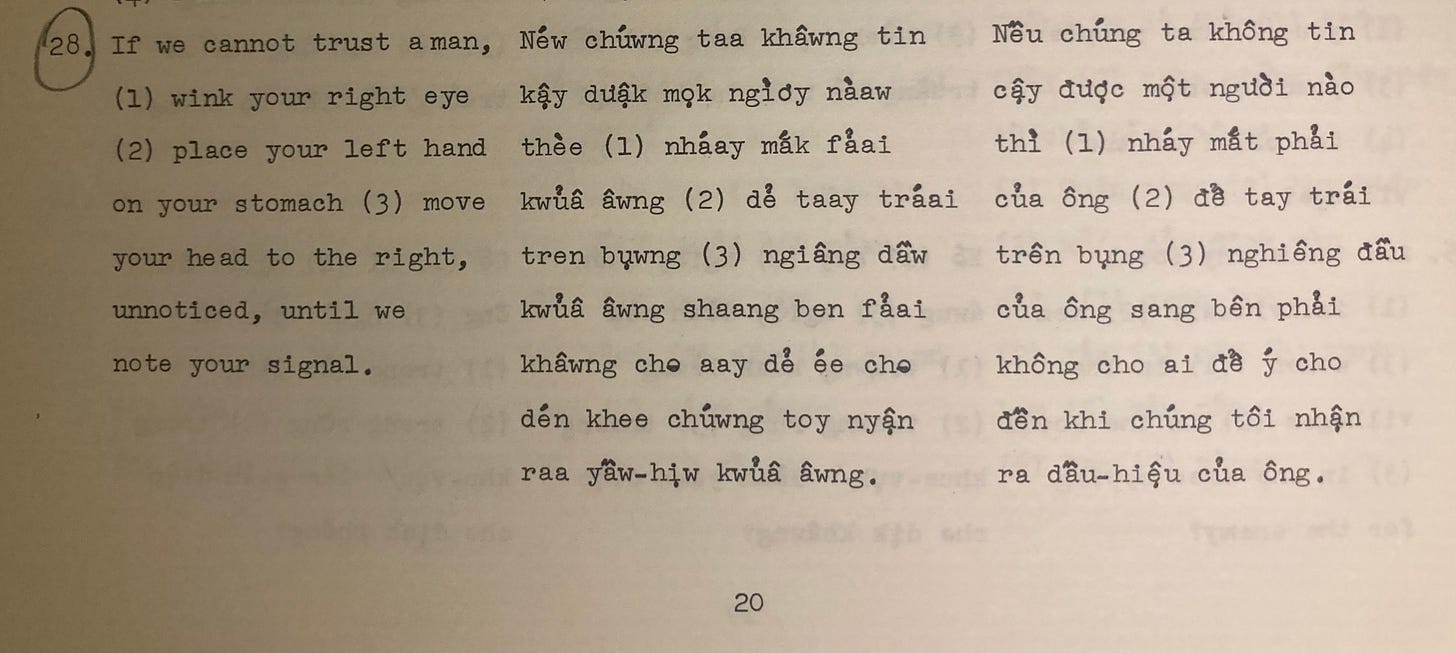

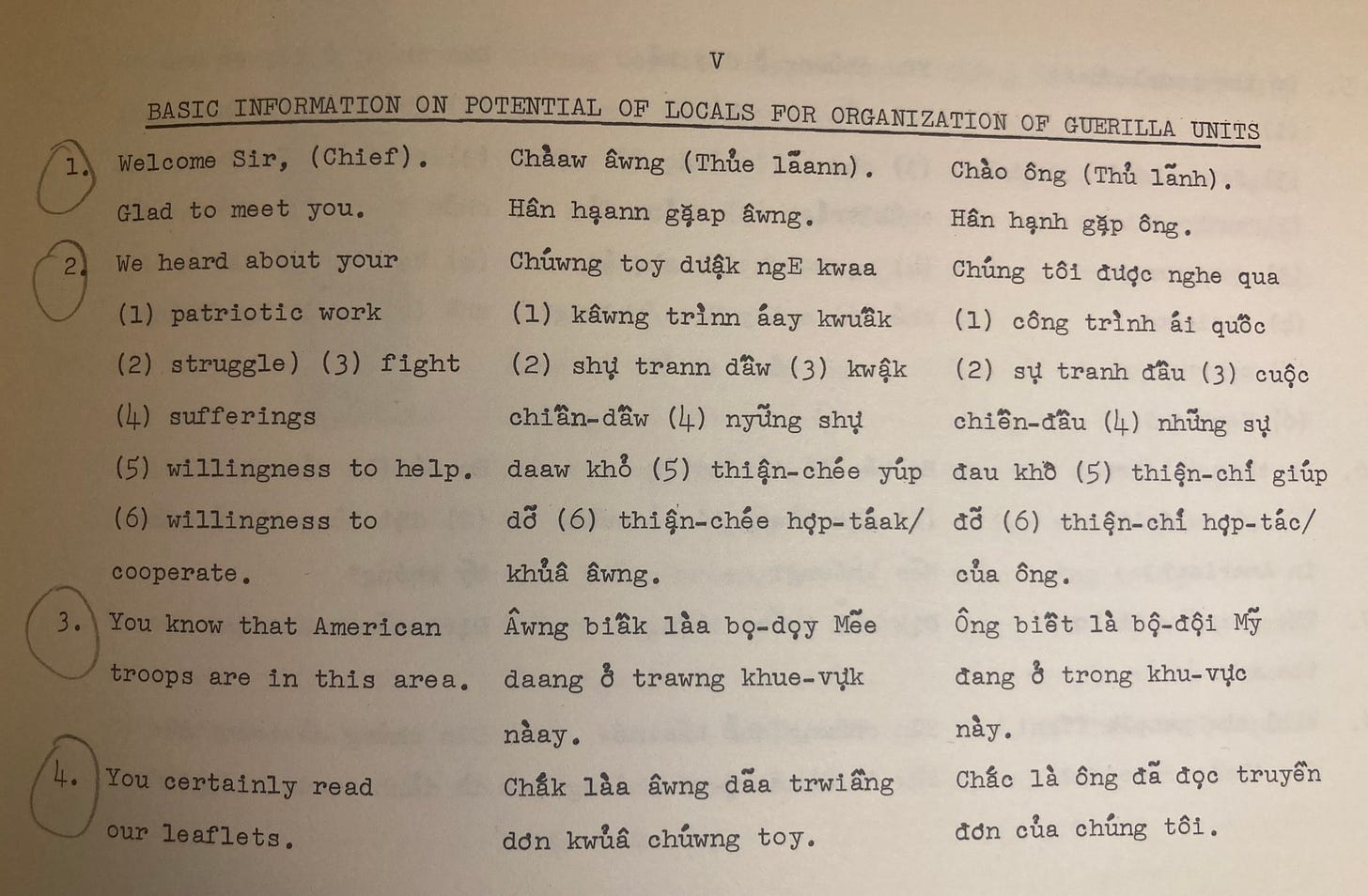



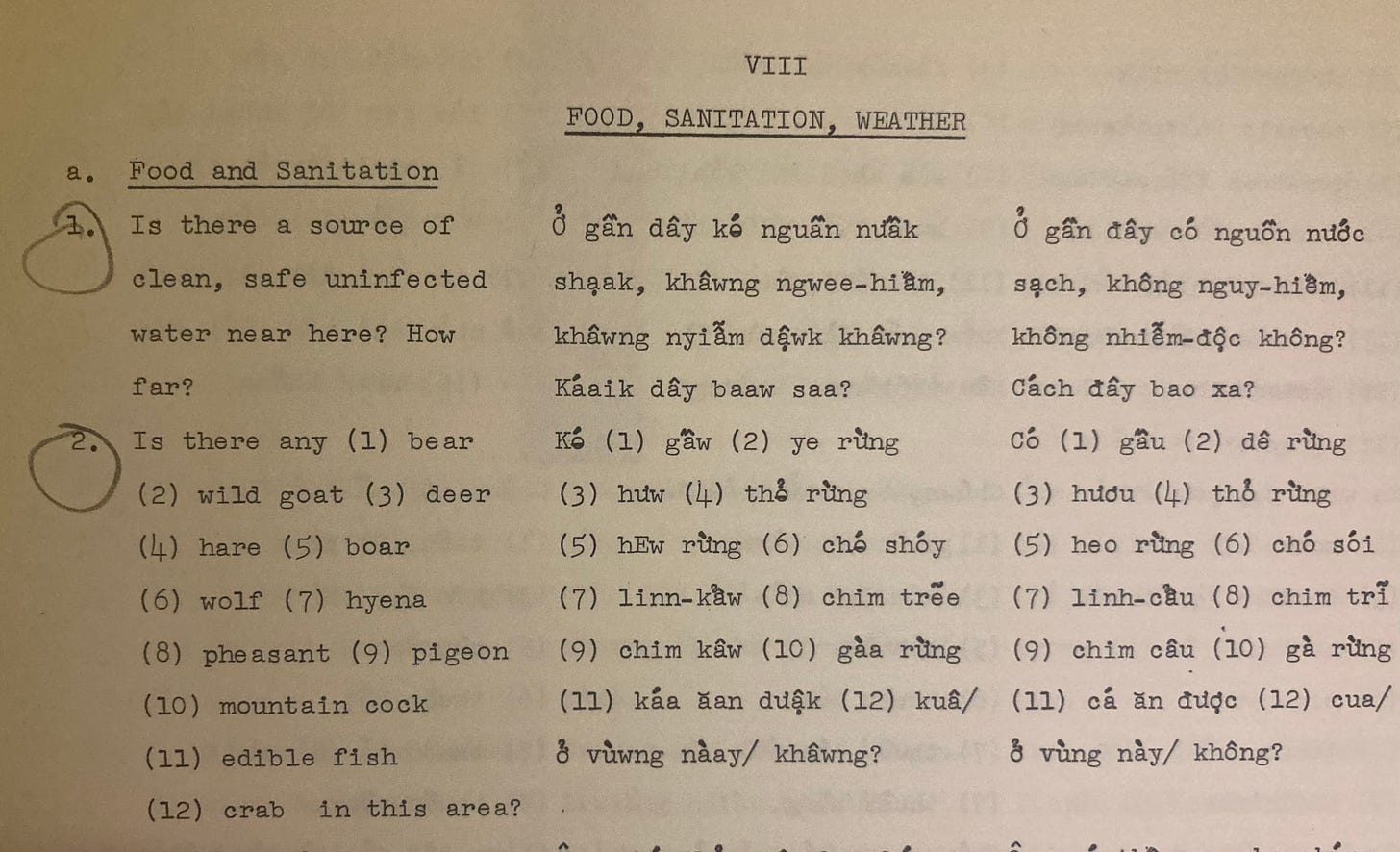



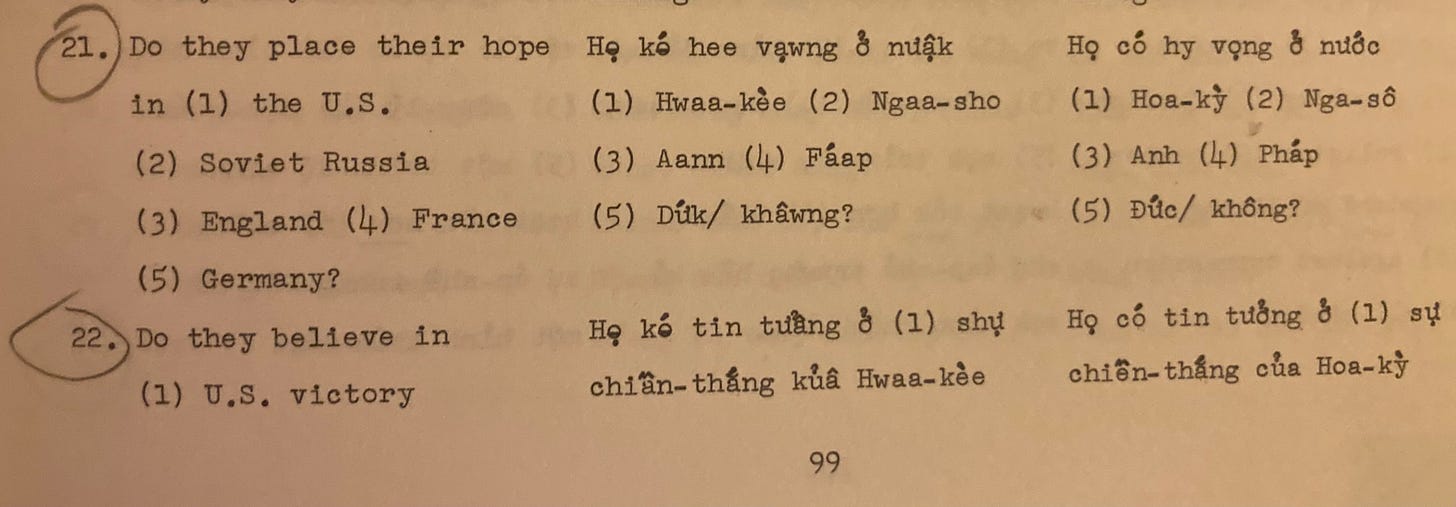
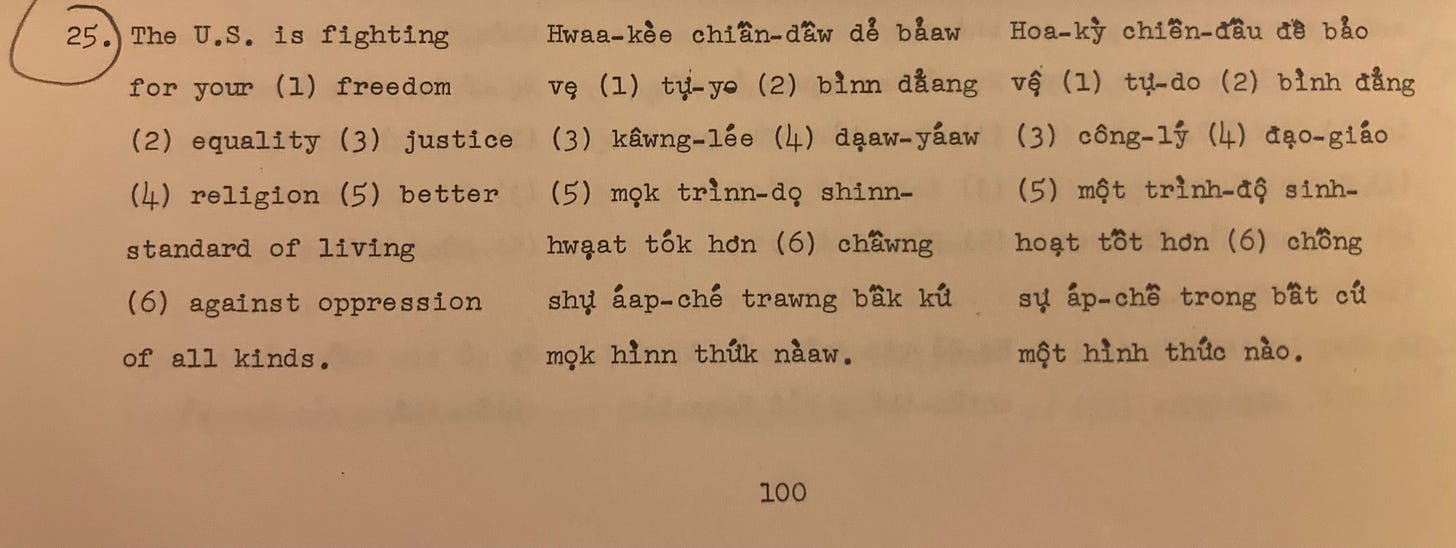




Very similar to how I’m reflecting on Chinese publishing. Context is critical.